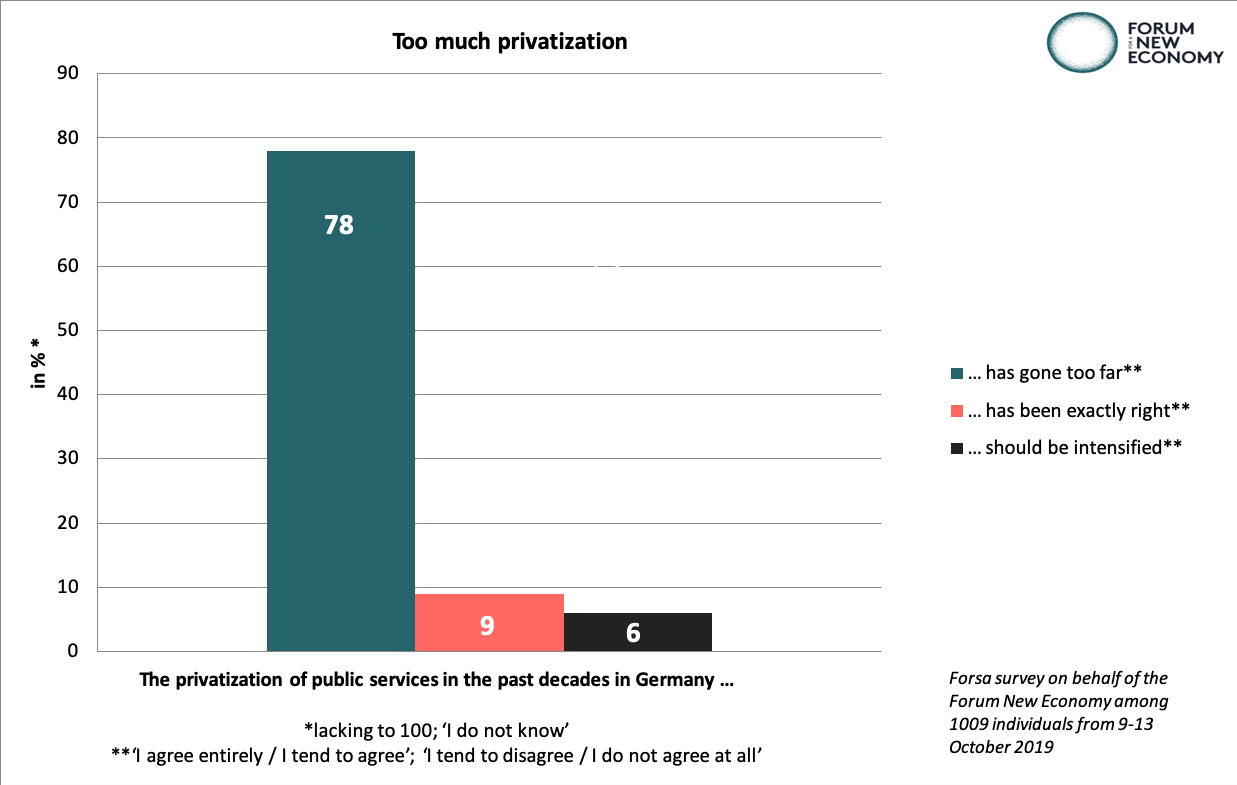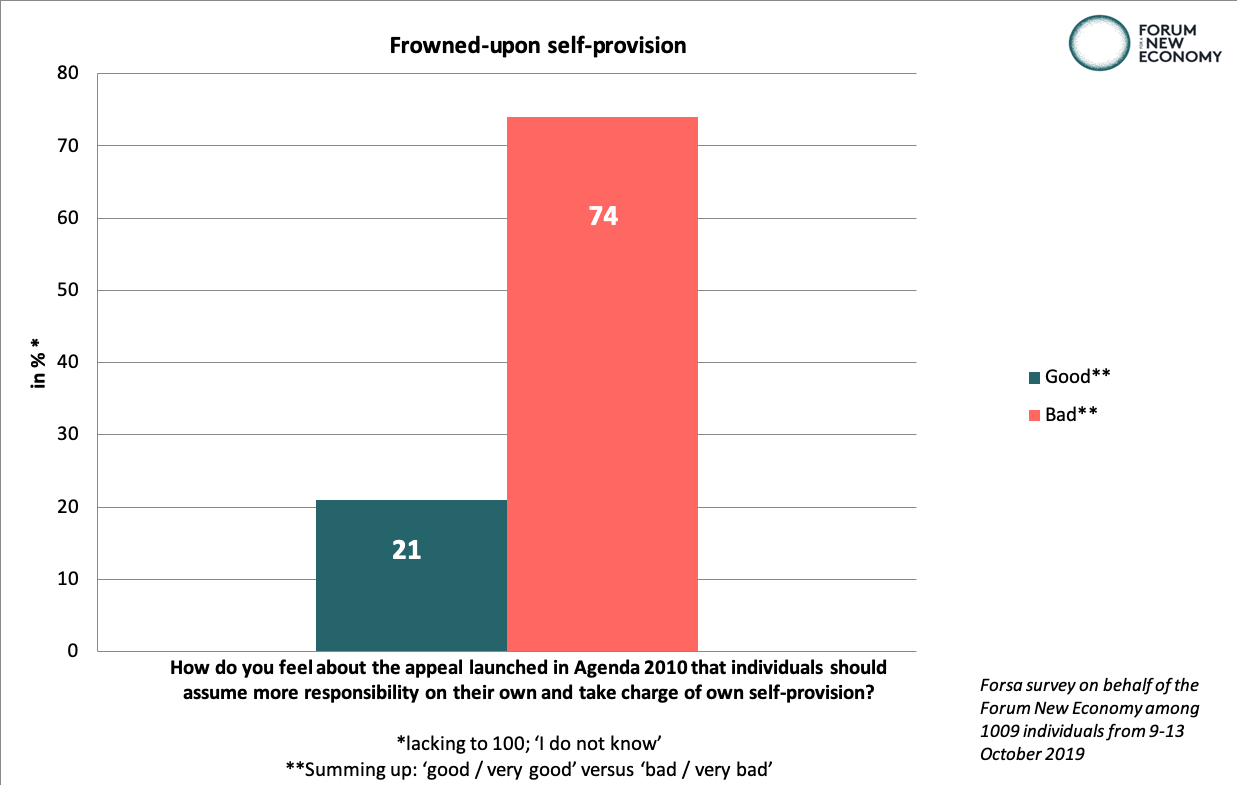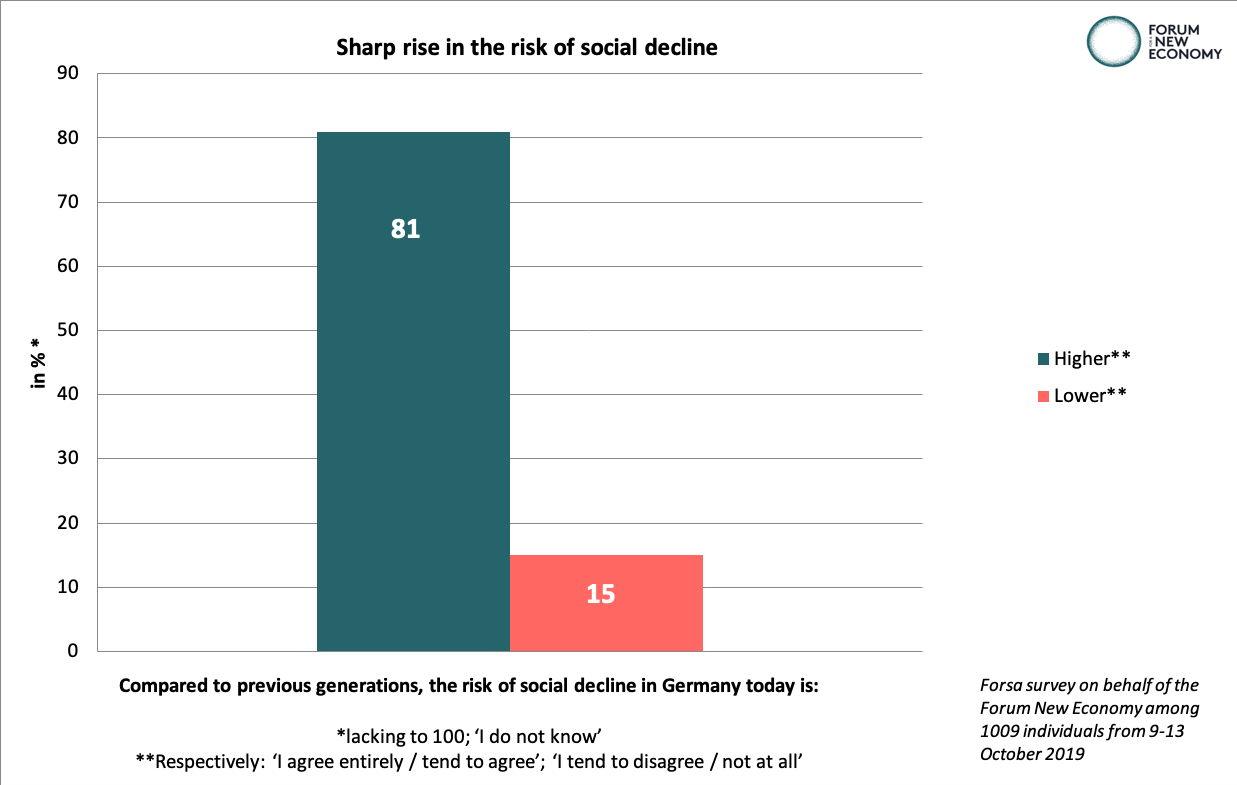NEW PARADIGM
Berlin orthodoxy? What do Germans really think
A poll among Germans reveals deep scepticism regarding economic orthodoxies officially defended in the country.
BY
FORUM NEW ECONOMYPUBLISHED
2. NOVEMBER 2019READING TIME
5 MINFor a long time, Germans considered Americans and Britons to be the true believers in the merits of free markets, reducing state influence in the economy and light-touch regulation of financial markets. Today the tables seem to have been turned. Germans are subject to criticism from Britons, Americans and others for their stubborn adherence to balanced budgets and refusal to boost public spending; their opposition to intervention in financial markets; and their complacency regarding widening inequalities of income and wealth.
Are Germans really so different? Or is it just those who are responsible for setting the tone in debates over economic policy? We commissioned a representative survey from Forsa, which produced some startling results. According to the findings, Germans are much more concerned about the waning power of the state and the negative side effects of globalization than the caricature of the conservative, stability-obsessed German would suggest. Indeed, their views are very much in line with the international trend.
New research is investigating the extent to which the rise of populist forces has its origins in socio-economic trends. It seems to be less about actual income levels and more to do with feelings of insecurity and perceived or actual loss of control and lack of recognition. In order to test this hypothesis, we commissioned a poll to Forsa that surveyed 1009 people between October 9th and 13th, 2019.
As the survey shows, almost 80% of Germans believe that privatization of public services has gone too far; just 6% support further privatization (see Graph 1). Only 21% consider it good that the Agenda 2010 reforms reduced state provision, forcing people to show more individual responsibility and self-reliance; fully 74% of those polled considered it wrong (see Graph 2). Just 6% agreed with Margaret Thatcher 1980s claim that we would all be served if everyone acted in their own interests.

Almost 70% of those surveyed believe that financial sector activity in its current form and extent provides prosperity for only a small minority, while just over 50% believe that the sector’s activity has made the situation worse for the majority of society.
More than half believe the risk of social decline is now greater than it was for previous generations. Fully a quarter believe the risk to be “very much higher”. And two-thirds of Germans expect this risk to rise further in the future, while almost a quarter considers this risk to be “very strong’ (see Graph 3).

Almost half believe that inequality of wealth and income is “increasingly a problem for the cohesiveness of society”. A further 38% “rather agreed” with this statement. One 1% thought the gap between rich and poor posed “absolutely no” problem (see Graph 4). Just 32% agreed that the very rich fully deserve their wealth. These results sit uneasily with repeated claims by the country’s ‘Council of Economic Advisors’ that the country does not have an inequality problem. Citizens see the issue differently, and according to recent academic research, they seem to have a point.

